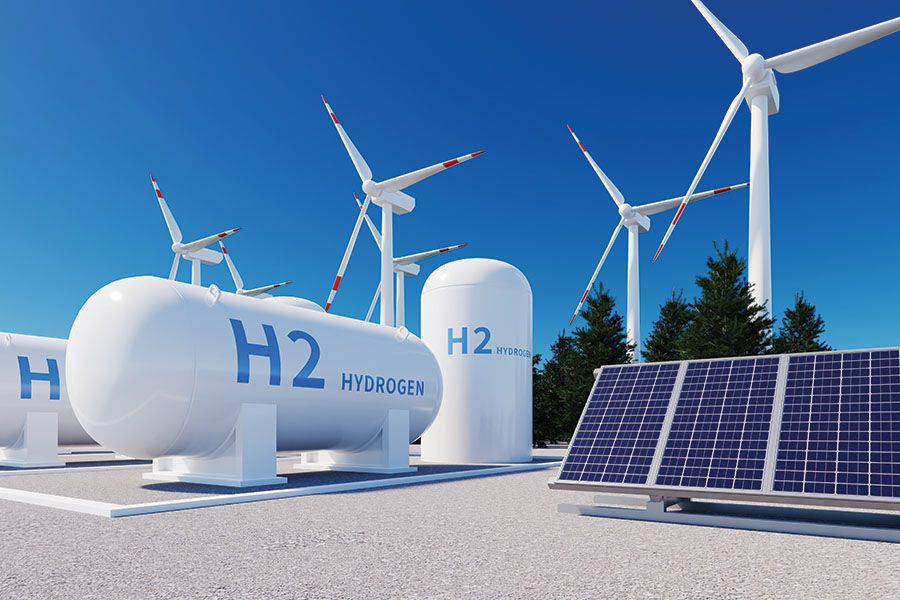
Researchers have made a major discovery beneath American soil that could quietly refine the energy industry. An estimated 170,000 years’ worth of clean power has been uncovered buried beneath our feet, which raises questions about what we’ve missed in our search for reliable energy. With the long and ongoing search for alternatives to fossil fuels, this breakthrough has the potential to offer a long-term solution as it may not only shift how we power our lives, but also how we think about energy altogether. Experts predict its impact may stretch far beyond the energy sector, with ripple effects emerging.
The Science Behind Hydrogen’s Hidden Power

Recent research highlights “white hydrogen,” a naturally occurring and emission-free resource found deep in the continental crust. Unlike manufactured hydrogen, which ironically creates more pollution than it saves, this underground bounty offers clean energy with minimal environmental cost. According to recent geological surveys, the U.S. has proven it’s not just rich in fossil fuels, but potentially is the world’s hydrogen capital, with at least 30 states sitting atop these reserves.
Hydrogen’s Unexpected Eco Advantage

Many “clean” energy solutions, such as rare earth mining or habitat disruption, have hidden costs. Natural hydrogen offers a different story. When used as a fuel, it emits only water vapor, no carbon dioxide or methane. Hydrogen extraction may also have a much smaller surface footprint, which is a pro against wind and solar, which require large land areas and can face local opposition. Utilizing natural hydrogen could mean fewer trade-offs between energy production and environmental protection.
Can Hydrogen Bring New Wealth to Old Oil States?

The U.S.’s progress in hydrogen extraction will have a significant impact on the economy. Locations that once relied on oil and gas could see new opportunities with hydrogen, supporting job creation and local economies. States like Texas and Oklahoma, already energy powerhouses, are exploring hydrogen as a way to diversify their economies and innovate for the future. This shift may also allow the U.S. to export clean energy expertise, strengthening its position in the global market by stirring up new industries and technologies.
Why Hydrogen Isn’t a Slam Dunk (Yet)

Large-scale hydrogen extraction is still in its early stages, with some experts pointing out technical and economic hurdles to overcome. Ongoing research and investments by the U.S. Geological Survey (USGS) and Department of Energy help address these challenges and unlock hydrogen’s full potential.
Several states have launched pilot projects to test new technologies and efficient extraction methods and tackle cost-effective infrastructure under development. The transition to oil in the 19th century and nuclear power in the 20th century faced doubts by researchers and experts before becoming mainstream, showing that skepticism often precedes breakthroughs.
$48M in Funding, 16 Projects — Is Hydrogen Finally Taking Off?

In 2023, the Department of Energy awarded $48 million to 16 projects in 13 states to advance hydrogen technology. This effort supports universities and private companies across the country in developing better extraction methods. These projects are focused on making extraction safer, cheaper, and more environmentally friendly. Early results are promising, with several pilot sites reporting successful hydrogen production at lower-than-expected costs.
A New Geopolitical Order

Countries that successfully extract and develop hydrogen expertise will set the tone and agenda for the future of global energy dynamics, shifting influence and alliances into new realms. If the U.S becomes one of the biggest global producers of clean hydrogen, it can reduce its reliance on imported oil and gas, which may support energy security and stability.
Clean and affordable hydrogen energy is predicted to have the potential to power desalination plants, providing fresh water to drought-stricken regions, demonstrating how the energy source offers more than electricity generation. With that, hydrogen could lower transportation costs and make manufacturing processes greener and more sustainable. These changes would improve quality of life and reduce pollution-related health issues, countering economic disparities and pushing for a more equal society.
From Clean Energy to Clean Water: Hydrogen’s Ripple Effects

Clean and affordable hydrogen energy is predicted to have the potential to power desalination plants, providing fresh water to drought-stricken regions, demonstrating how the energy source offers more than electricity generation. With that, hydrogen could lower transportation costs and make manufacturing processes greener and more sustainable. These changes would improve quality of life and reduce pollution-related health issues, countering economic disparities and pushing for a more equal society.
Hydrogen Meets AI, Space, and Agriculture

Hydrogen’s versatility goes beyond creating electricity. If we look at something like data centers, which are responsible for a significant share of global energy use, they could switch to hydrogen fuel cells, where they work around the clock without producing carbon emissions. This would decrease their environmental footprint and help tech companies support green living and climate goals. NASA already relies on hydrogen as rocket fuel, and if domestic production increases, space missions could become more affordable, opening new doors for exploration. In agriculture, hydrogen-powered tractors and equipment could drastically cut emissions, addressing one of the hardest sectors to decarbonize. These innovative uses show how hydrogen can drive change across multiple industries and inspire new advances.
Will We Seize the Opportunity?

The U.S has seen several energy innovations. Transitions from coal to oil or oil to electricity brought economic growth, social changes, and new infrastructure. By learning from past energy shifts, policymakers and industry leaders can prepare for hydrogen’s challenges and opportunities, ensuring a smoother transition and maximizing public benefit. The hydrogen revolution could have an even bigger impact by creating green cities, sustainable communities, and resilient infrastructure. Looking at history, it highlights the importance of innovation and adaptation in America’s energy future.
Hydrogen Could Change the World: Global Ripple Effects

In 2023, the U.S. Department of Energy selected seven Regional Clean Hydrogen Hubs to receive up to $7 billion in funding, with the goal of making hydrogen a practical and affordable energy source nationwide. This move could speed up the global shift to clean energy by inspiring other countries to look into the energy resource. If the U.S. can prove that hydrogen works at scale, it could significantly reduce worldwide emissions and set a new benchmark for sustainable development. The ongoing progress reflects growing confidence in hydrogen’s role as a cornerstone of the clean energy future, attracting further investment and innovation. The clean energy race is on. Will the U.S. seize the moment — or watch another revolution pass it by?







